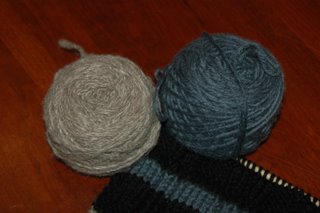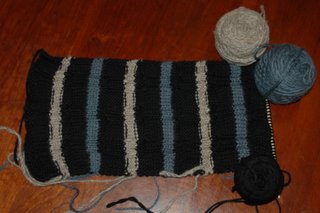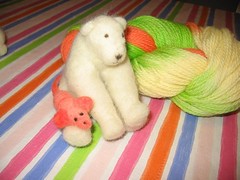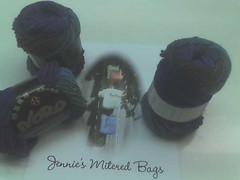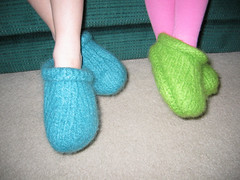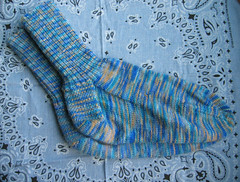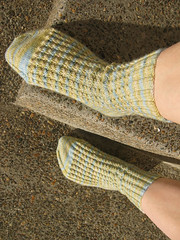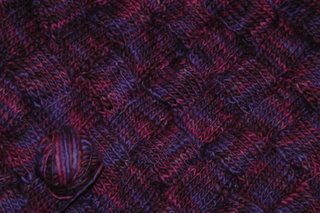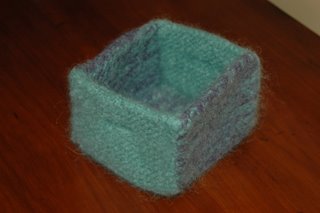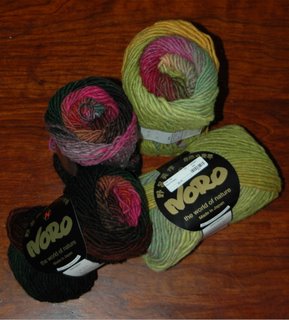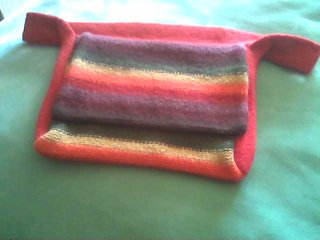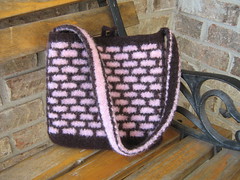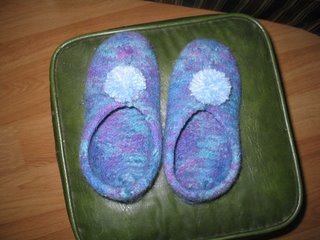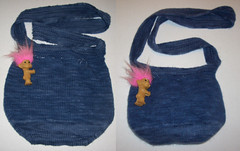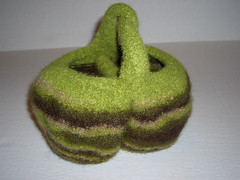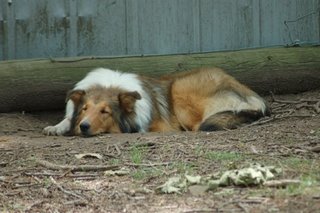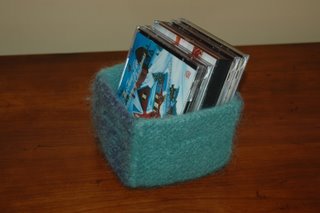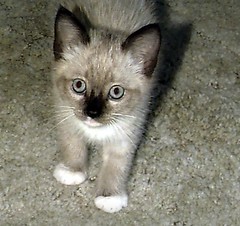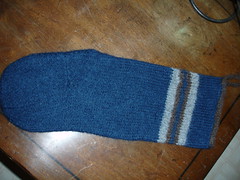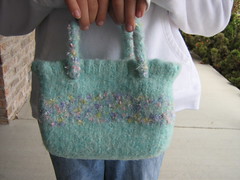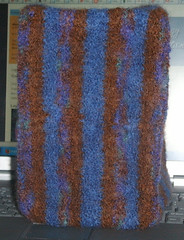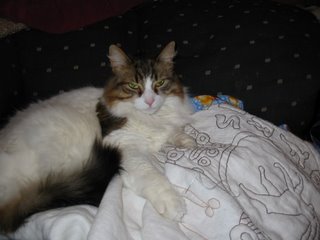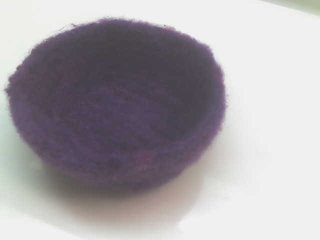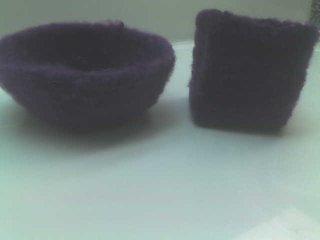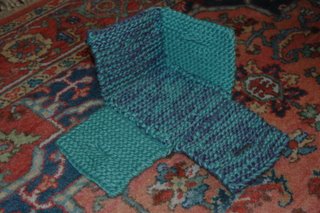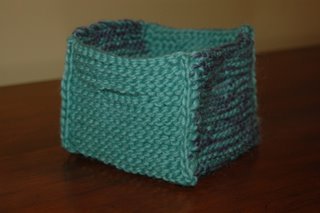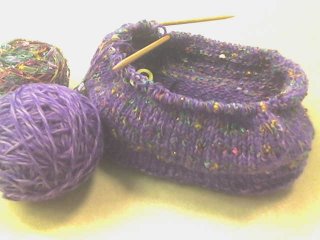
Growing up, I spent a great deal of time with my grandparents and various aunts and uncles of that generation. All began their adult lives and married in the shadow of the Great Depression, and the frugal habits acquired then set the tone for their lives. Each had their odd frugal quirks. Grandma saved and reused string, even the short pieces tied around the daily newspaper. Aunt Ann tossed every scrap of leftovers into the soup pot in the fridge for 'weekend soup.' And when you visited on the weekend, you ate weekend soup whether it happened to be a good combination of ingredients or not.
My cousins and I swore we'd never be like them. We'd be reasonable and moderate. We'd be
normal. And yet none of us escaped that early influence. Each of us has admitted to some secret, odd quirk of frugality. This month, I added another quirk to my own list.
Moths got into a box of my handspun yarn. I was heartbroken when I discovered this tragedy. So much time and effort went into that yarn, and it was beautiful. I had big plans for warm, nubby sweaters, and now the yarn was useless. Or was it? Was it all too badly damaged or could some of it be retrieved? I took a long, hard look at the damage, thought about the problem for a while, and came up with a plan that I could live with.
The two skeins that are too badly damaged now reside in a plastic bag in my box of garden seeds so I'll remember in the spring to put that yarn out where the birds can swipe it for their nests. Two more skeins became a felting experiment. I unwound the skeins and began winding the yarn into a ball, tying broken strands and knotting weak points to make a continuous, bumpy yarn. Then I started knitting.

I used the Fishermen's Wet Mittens pattern from
Fox & Geese & Fences by Robin Hansen. Traditionally, these mittens are knit to be about a third bigger than the hand. Then they're boiled or soaked in hot water and allowed to shrink. They're worn wet while working out on the boat in winter, and they continue to matt and shrink with use. The tight, thick fabric has surprising insulating qualities and is reputed to keep the hands warm even when dragging wet traps out of the frigid bay. I'll not be spending any time out on the water this winter, but no doubt I'll be carrying plenty of water buckets here at the farm. So warm-when-wet is an appealing trait.
My mittens knit up larger than recommended, though they're felting down nicely. Because they were knit from damaged yarn, I was particularly careful with the felting process. I did actually boil them in a pot on the stove, periodically stirring with a metal spoon for gentle agitation to help the fibers matt. When I'd had enough of that, I dumped them into a metal colander to drain. After they'd cooled enough to handle, I examined them and decided the shrinkage and felting that had occured at that point had strengthened the fabric. I tossed the mittens into the dryer with a couple of towels for a while. Then again with the next load of laundry from the washer. At the end of that load, they'd shrunk into a tight, thick fabric with the occasional nub where the yarn was knotted together. They have a nice, rustic look, but are still bigger than I'd like. Granted, there's room for me to wear a pair of work gloves underneath them, which can be a very good thing in certain circumstances. I'd like to see if they'll shrink a bit more though, so I wet them with hot water again, and they're tumbling in the dryer now with a load of jeans. I'll post pictures when they're finally finished.
It's been an interesting experiment. I've plans for a felted hat from the remainder of the damaged yarn. And I'm inordinately pleased at having found a practical use for yarn that otherwise would have been wasted. My grandmother would have been so proud.
